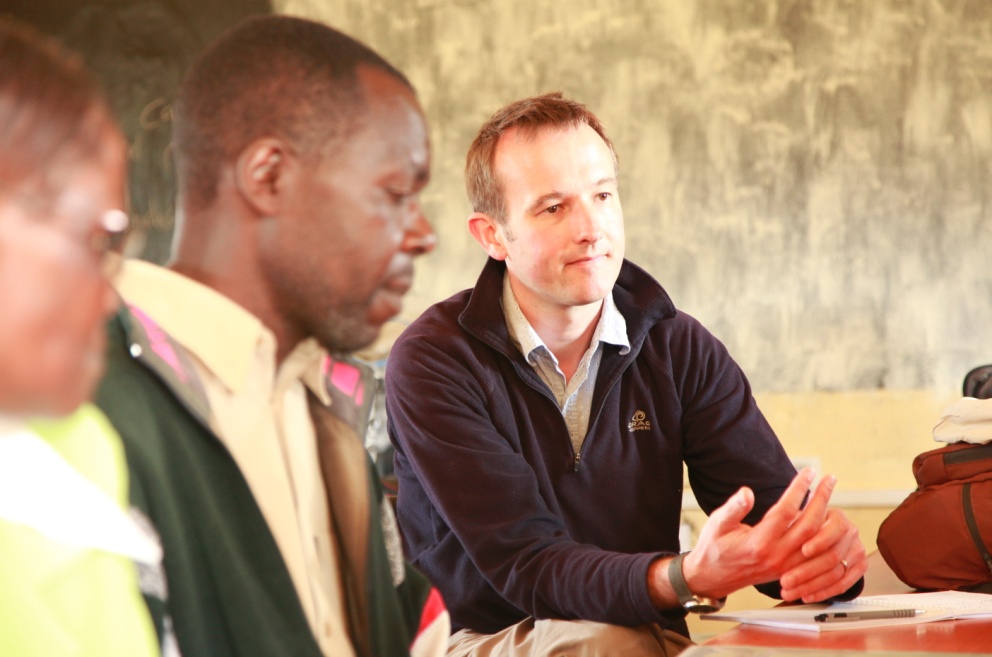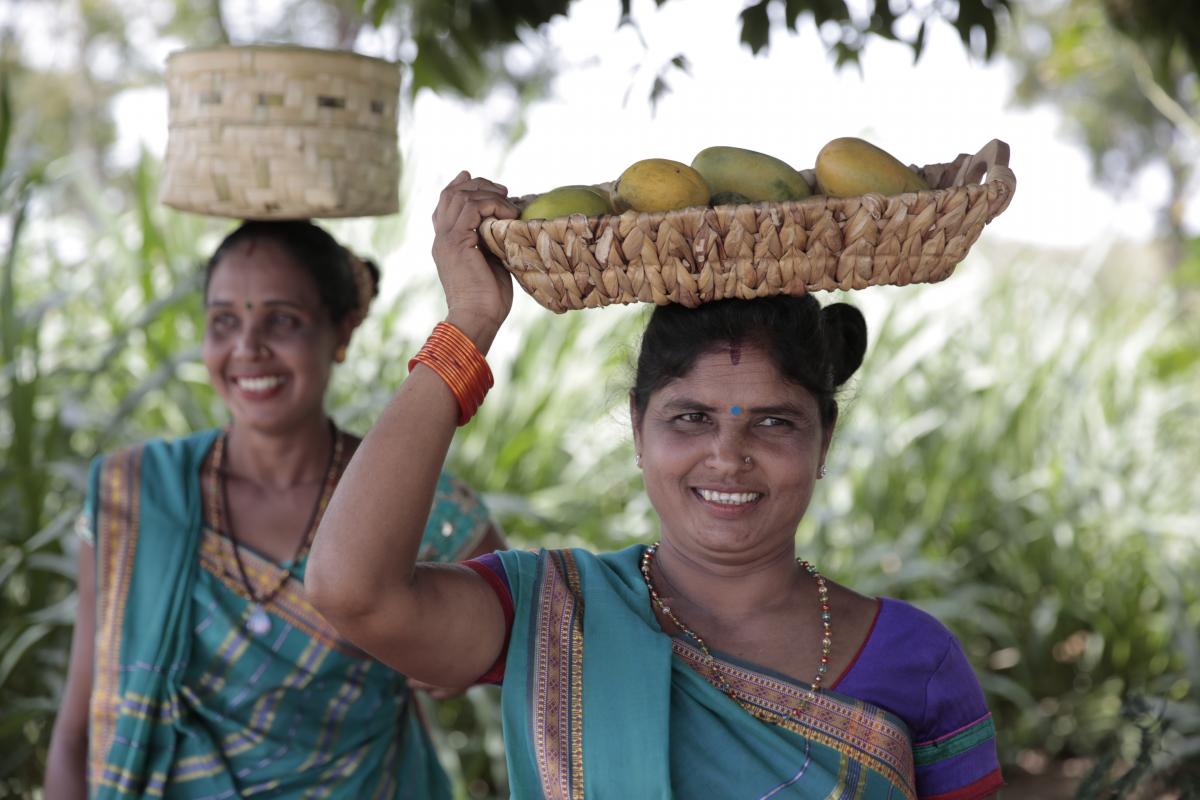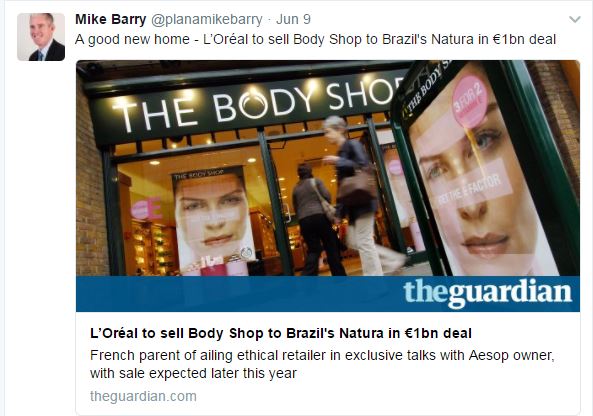With a sale to Brazil's Natura under way, Terry Slavin visits the company’s new £1m R&D lab to find out why sourcing from communities is key to unlocking a pipeline of innovative new ingredients
Consider the tea tree plant – its essential oil is found in bathroom cabinets everywhere, an active ingredient in thousands of products, from shampoos to acne creams, massage oils to face wash, thanks to its antiseptic and anti-inflammatory properties.
But how the plant itself is picked and processed makes a world of difference to how efficacious the oil is, according to The Body Shop. The UK ethical cosmetics company should know a thing or two about tea tree. It is the world's biggest user of the stuff, consuming 9 tonnes of essential oil a year.
But unlike many other skin care companies, it doesn’t buy tea tree as a commodity on the open market, but from the KOOFA cooperative in Kenya as part of its community trade programme, which is now in its 30th year.
On a visit to the company's headquarters in Croydon, south of London, Mark Davis, The Body Shop's international sourcing director, uses tea tree to explain why the approach pioneered by its founder Anita Roddick is even more important today, and why it is aiming to increase its community-traded natural ingredients from 19 to 40 by 2020, part of the Enrich Not Exploit sustainability strategy the company launched in 2016.
"The tea tree leaf has anti-inflammatory and anti-bacterial properties, but if you get the wrong variety, pick it at the wrong time, or process it incorrectly, it will have a different balance of molecules" and won't deliver the same benefit, he says. "For me that is the beauty of community trade. You can control that upstream activity by working very closely with the communities.”

Like shea butter, which is almost as ubiquitous, tea tree was one of the first natural skin care ingredients The Body Shop “discovered” after Roddick came across it being used by an aboriginal tribe in the far north of Queensland. She engaged the Guugu Yimithirr Warra tribe to produce it for products for her growing network of stores.
Today it is sourced from 550 smallholder farmers around Mount Kenya National Park, who hand-harvest the leaves at the optimal time and take them to a nearby processing plant, where they are gently steam-distilled into essential oil within 12 hours of being picked.
In a conventional plant, Davis says, “Distillation is done quickly, to be as efficient as possible. But to get the right part of the plant you need to do it quite slowly. The gentler the heat, the better the quality of the oil.”
But the benefits of community trade go beyond the quality of the ingredients they produce, and the advantages for the communities themselves.
The market for organic personal care products is booming, with skin care products expected to grow at a compound annual growth rate of over 10% from 2016 to 2025, according to Research and Markets.
Davis says community trade puts The Body Shop at an advantage over its competitors as it builds up a pipeline of innovative new natural ingredients. Under the Nagoya protocol of the internationally binding Convention on Biological Biodiversity, which came into force in 2014, companies can only exploit genetic resources for commercial gain if the benefits, both monetary and non-monetary, are shared with local communities on mutually agreed terms and with prior informed consent.

“It’s a great piece of legislation because it prevents companies from stealing genetic resources and protects the communities and countries from biopiracy,” says Davis. “We have the great luxury of 30 years of community trade, which has taught us how to work with communities, how to work with NGOs and often with governments as well.”
Later this year The Body Shop will be introducing a skin care line derived from community-traded mango seeds, having signed an agreement with Manorama Group, a mango products export company in India, as its supplier.
According to Manorama’s website, it has a 30-year history of working with tribal communities to source wild mango from forests. “But the exciting thing about working with Manorama,” says Davis, “Is that we will be working with tribal communities on a whole variety of other ingredients as well so we can really give value to a piece of forest.”
Throughout its community trade programme, The Body Shop has found that wild harvesting is the best way to preserve forests because it gives communities an income from leaving forests standing, Davis says. But it has to be done well. By taking a variety of ingredients from a forest, the communities get a year-round income and aren’t over-exploiting a single resource.
It is also good for ensuring The Body Shop has a secure supply of ingredients, he explains. “With synthetic ingredients you go into a factory, you press a button and something comes out. If your sales change, you press the button more or less often. If you are trying to make a natural ingredient, you can only plant it one time a year, you can only harvest it one time a year, it is subject to seasonality, rains, hurricanes etc,” Davis says. “One of the expertise we have developed in The Body Shop is how do you manage that risk so we know we can buffer stocks in certain places, diversify crops, to enable us to have that security of supply.”
Late last year The Body Shop opened a £1m R&D lab across the road from its head office where a research team of seven, led by Neil Watson, work on developing new ingredients. It is also reformulating the ingredients in many of its existing products - some 70% of them, by volume - to reduce their environmental impact, another commitment in the enrich not exploit strategy.
Watson explains that his lab scores each product against four criteria: biodegradability, water footprint, the percentage of ingredients of a renewable, natural origin, and the percentage of materials derived from green chemistry.
The first new product the lab launched is an almond milk and honey body butter that is nearly 90% biodegradable, compared to 70% in other body butter product lines. The aim is to achieve 100% biodegradability, Watson says. “But we won’t get to 100% straight away. For some materials there are no [biodegradable] repélacements.”

This includes silicones, which perform a number of technical functions as well as their emollient properties. Watson and his team are working with suppliers to finding alternatives.
Two-thirds of the ingredients being tested in the lab are also used by its parent company, L’Oréal, and it is not surprising given that Davis, who was in charge of sourcing raw materials for The Body Shop at the time of the takeover 2006, was poached by L’Oréal to head up raw material innovation for the entire group. In 2011 he came back to The Body Shop, but has continued to feed his expertise into the group's brands, including Kiehl's.
In February L’Oréal announced that it was looking to find a buyer for The Body Shop. Analysts pointed to slowing sales and declining operating margins compared to the rest of the group. It’s a touchy subject, and one The Body Shop is not prepared to comment on, given that the sale is still pending. News late last week that L'Oréal has struck a €1bn (£877m) deal with Brazilian cosmetics company Natura for The Body Shop, which it expects to finalise this year, was hailed by Mike Barry of Marks & Spencer, who called Natura "a good new home".

"Enrich not exploit" is an ambitious and some would say brave sustainability strategy. But the slogan could equally serve as a cri de coeur to Natura about how the Brazilian company should treat The Body Shop. After listening to Davis and Watson, one feels it would be a setback for sustainability if it goes the other way.

